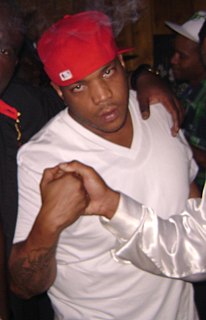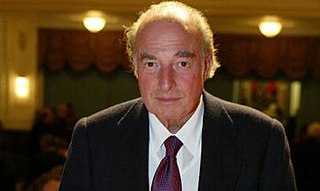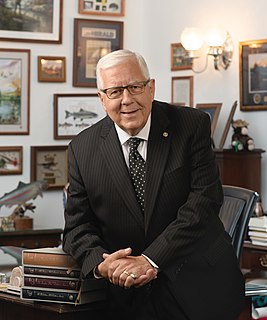Top 1200 Money Management Quotes & Sayings - Page 4
Explore popular Money Management quotes.
Last updated on December 22, 2024.
Today many American corporations spend a great deal of money and time trying to increase the originality of their employees, hoping thereby to get a competitive edge in the marketplace. But such programs make no difference unless management also learns to recognize the valuable ideas among the many novel ones, and then finds ways of implementing them.
If you have "needing money" in your vibration, then you will keep attracting needing money. You have to find a way of being happy NOW, feeling good NOW, and being in joy NOW, without the money, because those great feelings are how you will feel with the money. Money doesn't bring happiness - but HAPPINESS BRINGS MONEY.
The way in which we manage the business of getting and spending is closely tied to our personal philosophy of living. We begin to develop this philosophy long before we have our first dollar to spend; and unless we are thinking people, our attitude toward money management may continue through the years to be tinged with the ignorance and innocence of childhood.
The TMS is evolving into a logistics platform that can handle all nodes, all geographies and all transportation nodes. It's already talking to other applications in the supply chain, like warehouse management, order management and ERP systems. By adding underlying algorithms, a TMS can now understand the relationship between the cost of inventory and the cost of transportation and come up with an optimal solution to answer those questions.
Companies, as they grow to become multi-billion-dollar entities, somehow lose their vision. They insert lots of layers of middle management between the people running the company and the people doing the work. They no longer have an inherent feel or a passion about the products. The creative people, who are the ones who care passionately, have to persuade five layers of management to do what they know is the right thing to do.
I believe a great company, whether improving a sector or creating a new one, needs to have an excellent product or service at its core; needs strong management to execute the plan and a good brand to give it the edge over its competitors. Providing quality service, combined with value for money and in an innovative way ensures you offer real value - and finally to be responsible to society and the planet.
I think there are probably too many asset management companies in the world, and I think the place to be is either big or small. The area where it is probably more difficult to be is in the middle ground, where you've got that cost of regulation, you've got the cost of buying your own research, you've got all the costs of running an asset management company without the benefits of a big income producing asset.
Randy Pausch on time management: Here's what I know: Time must be explicitly managed, like money. You can always change your plan, but only if you have one. Ask yourself: Are you spending your time on the right things? Develop a good filing system. Rethink the telephone. Delegate. Take a time out. Time is all you have. And you may find one day that you have less than you think.
I put that in my management's hands and my company's hands. We sit down all together, the family, D-Block, my management and I go build with KOCH, the distributor. You open up your own sites, you get your MySpace, you get your websites and get your little digital team on the side... and that's how you handle that.
It's my guess that something like 5% of GDP goes to money management and itsattendant friction. I define it broadly - annuities, incentive pay, all trading, etc. Nobody else has used figures that high, but that's my guess. Worst of all, the people doing this are among the best and the brightest. Hundreds and thousands of engineers, etc. are going into hedge funds and investment banking. That is not an intelligent allocation of the brainpower of the civilization.
I basically see two reasons for a going public: Glencore gets access to more money. It is a way of funding your business and to finance growth. Plus: You have more liquid shares. It is easier to leave the company and redeem your shares. The 'going public' may also be an exit strategy for the top management.
What I find in a creative company is while there is a desire to build a management foundation that can feel clear and consistent, the unique product we're in Illumination Entertainment making doesn't always allow for that. So rather than following management strategy that talks about building your structure and then staffing that structure, I tend to build the structure around the strengths of the individual people we have.
When I wrote my first book, Crisis Management: Planning for the Inevitable, it was endorsed by the American Management Association, and consequently was read by America's top corporate leaders, and overnight put me in high demand as a consultant and as a speaker. Also, that book forever changed the way businesses look at and deal with crises by giving a tangible feel to an otherwise intangible subject.
I think that the best training a top manager can be engaged in is management by example. I want to make sure there is no discrepancy between what we say and what we do. If you preach accountability and then promote somebody with bad results, it doesn't work. I personally believe the best training is management by example. Don't believe what I say. Believe what I do.
I was applying to the art school, but there was a checklist that said I had to do either production design or stage management or acting. I thought, "I don't want to be an actor, but I know production and stage management take acting classes" - this is literally my internal monologue. I was like, "Designers don't have to take acting classes. Cool. I'll check that box".
The start-up life kept me busy and surfaced the problem of not being able to stay on top of my personal finances, which led me to invent Mint.com. I was working 80-hour weeks, and had done enough preliminary work and research to know I had a big idea: To make money management effortless and automated.
Invest in low-turnover, passively managed index funds... and stay away from profit-driven investment management organizations... The mutual fund industry is a colossal failure... resulting from its systematic exploitation of individual investors... as funds extract enormous sums from investors in exchange for providing a shocking disservice... Excessive management fees take their toll, and manager profits dominate fiduciary responsibility.
The directors of such companies, however, being the managers rather of other people's money than of their own, it cannot well be expected, that they should watch over it with the same anxious vigilance with which the partners in a private copartnery frequently watch over their own.... Negligence and profusion, therefore, must always prevail, more or less, in the management of the affairs of such a company.
The management of creativity is more intimate. By that I mean that it deals with an individual's personal, psychological landscape. It deals with the way you create relationships. It deals with creating an atmosphere and environment that support the creative process. As a result, it is a management skill set that is inherently psychological and that encourages desired outcomes rather than demands those outcomes.
We [at Soros Fund Management] use options and more exotic derivatives sparingly. We try to catch new trends early and in later stages we try to catch trend reversals. Therefore, we tend to stabilize rather than destabilize the market. We are not doing this as a public service. It is our style of making money.
I found marketing to be highly descriptive and prescriptive, without much of a foundation in deep research. I brought in economics, organization theory, mathematics, and social psychology in my first edition of Marketing Management in 1967. Today Marketing Management is in its 15th edition and remains the world's leading textbook on marketing in MBA programs. Subsequently, I wrote two more textbooks, Principles of Marketing and Marketing: an Introduction.
Although he reputedly hated the label of 'guru', Peter Drucker was, by any standards, the greatest management guru the world has yet seen. In 1996, the McKinsey Quarterly journal described him as the 'the one guru to whom other gurus kowtow' and Robert Heller described him as 'the greatest man in the history of management', praise indeed for a man who described himself as 'just an old journalist'.
Nothing in finance is more fatuous and harmful, in our opinion, than the firmly established attitude of common stock investors regarding questions of corporate management. That attitude is summed up in the phrase: "If you don't like the management, sell your stock." ... The public owners seem to have abdicated all claim to control over the paid superintendents of their property.
The only beef Enron employees have with top management is that management did not inform employees of the collapse in time to allow them to get in on the swindle. If Enron executives had shouted, "Head for the hills!" the employees might have had time to sucker other Americans into buying wildly over-inflated Enron stock. Just because your boss is a criminal doesn't make you a hero.

























































